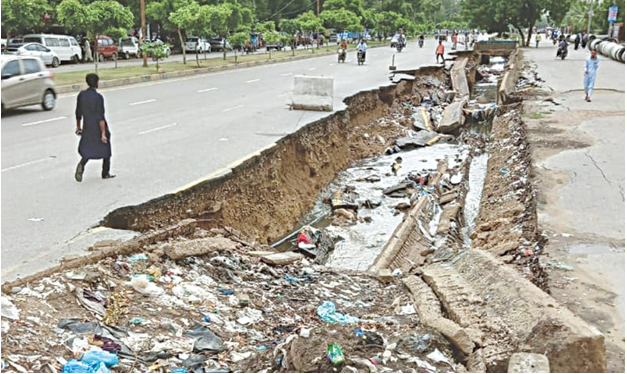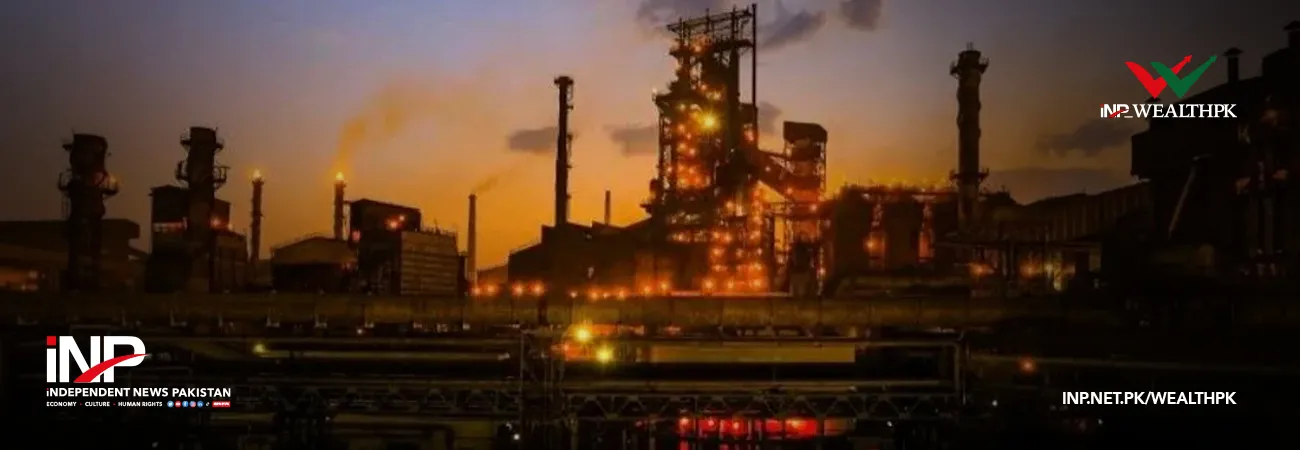i INP-WEALTHPK
Ahmed Khan Malik
The Sindh Industrial Trading Estate (SITE) is grappling with worsening infrastructure, creating serious challenges for industrial growth and investor confidence across the province.

From broken roads and clogged drains to unreliable utilities, conditions in SITE’s Karachi, Hyderabad, and Sukkur zones have deteriorated in recent years, according to industrialists and trade associations. Business leaders warn that unless urgent action is taken, Sindh could face further industrial slowdown, job losses, and declining exports.
In SITE Karachi, large stretches of roads are riddled with potholes and open manholes, while storm drains overflow even after mild rain. Streetlights are missing, and garbage heaps line the main arteries. “We are running factories in what looks like a war zone,” said industrialist Ahmed Musarrat. “Raw materials and finished goods face delays because trucks can’t move easily, and workers suffer daily from unsafe and unhygienic conditions.”
Similar conditions prevail in the Hyderabad and Sukkur SITE zones, where business owners complain of erratic electricity supply, gas shortages, and broken water pipelines. “The Hyderabad Chamber of Commerce and Industry has repeatedly appealed to the Sindh government for intervention, calling the situation an economic emergency for the industrial sector,” said Latif Jumani, a chamber member.
Industries operating in SITE contribute billions of rupees in taxes and employ thousands of workers. However, poor infrastructure has inflated operational costs, reduced productivity, and discouraged potential investors. “Factories are being forced to install their own water filtration plants, generators, and waste-disposal systems,” Musarrat noted. “This duplication of effort makes our products uncompetitive compared to regional markets.”
He warned that the decaying condition of industrial zones could undermine Sindh’s efforts to attract investment under the Special Economic Zones framework and other initiatives designed to boost exports. Earlier this year, the Sindh government announced several measures to address the issue. The provincial cabinet approved Rs1.1 billion for road rehabilitation, drainage repairs, and streetlight installation in the Hyderabad estate.
Similar directives were issued for Sukkur SITE, including accelerated road reconstruction and the waiver of non-utilisation fees on industrial plots to encourage activity. Despite these announcements, progress has been slow. Jumani blamed bureaucratic delays and a lack of coordination between SITE Limited — the estate’s management body — and local municipal authorities. “There is no shortage of plans or funds,” he said. “What’s missing is execution. Projects are announced with much fanfare, but rarely completed on time.”
He urged the Sindh government to launch a comprehensive revamp plan focusing on five priority areas: reliable utilities, road and drainage reconstruction, solid-waste management, encroachment removal, and transparent governance. Jumani also called for public disclosure of project timelines and progress reports, along with the formation of a joint oversight committee comprising government officials, industrialists, and urban planners to monitor progress.
Musarrat emphasized that Sindh’s industrial zones, particularly SITE Karachi, remain vital to Pakistan’s manufacturing base. Yet their neglect is turning these potential assets into liabilities. Unless immediate steps are taken to modernize infrastructure and restore investor confidence, he warned, Sindh’s industrial estates could lose their competitive edge to emerging industrial zones in Punjab and Khyber Pakhtunkhwa.
Credit: INP-WealthPk








